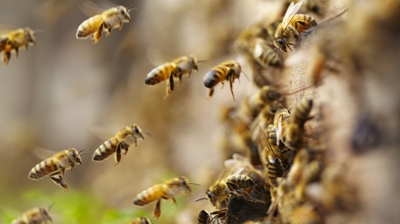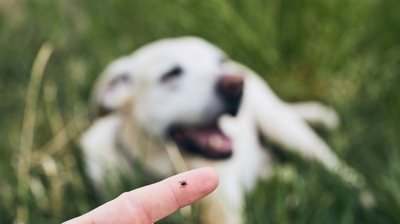A Simple Yet Effective Guide To House Mouse Control In Pasadena
There are many ways to discover mice. You may open a shed to get something out of storage and have one of these little pests scurry to a wall, run out the door, and disappear under something too heavy to move. You may go into an attic space, open the drawer of a stored dresser and have a mouse hop right out. You may hear mice in your walls. You may find droppings but not see any mice. You may smell urine and wonder, "Do I have mice?" Mice can be mysterious and frustrating to deal with when they get into your Pasadena home. They're small and resourceful critters that access areas of your home that you can't. It is hard to get rid of mice because they're so elusive.
If you're finding evidence of mice or hearing mice sounds in your walls, there are a few things you should know about those tiny rodents. Join us as we look at the common habits and behavior of mice, what to expect from mice in your home, and some of the challenges of catching mice. Then, we'll share some of the ways a pest professional deals with house mice. If you have a mouse problem and want a professional to take a look, remember that you can navigate to our contact page at any time for professional rodent pest control in Pasadena. We're always happy to assist you.
Habits And Behaviors Of Common House Mice
House mice are aptly named. They love living in houses. In fact, house mice can get inside a house and stay indoors permanently. If you detect mice in your home and take time and energy to seal any possible entry points those mice may have used to get into your home, your infestation can still grow. The mice in your home don't need to have more mice from the outside joining them. They make mice—and lots of them. Mice reproduce quickly. In theory, one female mouse can give rise to 5,000 individual mice in a year. She can do this because her offspring can mate with each other in as little as four weeks. The limiting factor is access to food resources. The last thing you want is for mice to find a plentiful food source in or around your home.
House mice set up house inside your home. They'll create nests in some of the strangest places. You can tell they've created a nest because you'll find soft material gathered into the spot. Mice gather soft materials from stored items, such as mattresses, box springs, couch cushions, and clothing. They move these materials to other stored items, such as dresser drawers. Mice prefer to create their nests in wood voids and often make nests inside walls, floors, and ceilings. You may also find mice living inside a couch cushion or another object from which they gather materials. It depends on the situation.
Mice prefer to live as close to food as possible. While they definitely live in attic spaces, they'll prefer to live in the walls of your kitchen and pantry. They do this so that they can easily go out, get a bite to eat, and go back to the nest and rest. A mouse eats 15 to 20 times a day. Sure, they don't eat much at each meal, but food is the most important thought in the mind of a little mouse.
House mice are domestic rodents but they aren't domesticated. While they are comfortable in domestic settings and live in close proximity to humans, they're still wild. One of the things wild mice do is leave their waste everywhere. They also leave waste where they sleep, which is one of the reasons mice are a health concern.
Can Mice In My Home Really Make Me Sick?
A mouse doesn't seem like much of a threat. Some people keep mice as pets. How bad can they be? But a pet mouse doesn't freely crawl around inside your home, leaving its waste as it goes. A pet mouse doesn't chew holes in your stored food packages and contaminate the food inside. Most of all, a pet mouse doesn't crawl in dirty places in and around your home or get into trash. Wild mice do. When they get into dirty places, they can pick up harmful microorganisms and spread them to everything they touch with their fur. If you have flu-like symptoms, your sickness may have a connection to the mice in your home.
Another way mice can make you sick is one that may surprise you. Mice carry ticks and fleas. In fact, one itty bitty mouse can have a hundred seed ticks on its body! When those baby ticks grow, they'll jump off that mouse and look for a larger animal. Both ticks and fleas have the ability to spread diseases, such as bartonellosis, ehrlichiosis, Lyme disease, typhus, Rocky Mountain spotted fever, and many more. Some diseases spread by ticks are dangerous.
The good news with house mice is that they can take to living exclusively indoors. If you keep every inch of your home clean, you can reduce the ability for the mice in your home to pick up microorganisms and move them to sensitive areas. Indoor mice are also less likely to pick up ticks and fleas.

Our Reputation Speaks for Itself!
Read Our Reviews
At Accutech Pest Management, customer satisfaction is not just a goal—it's our commitment. Explore reviews that showcase our dedication to exceeding expectations.
-
"Reliable, effective, and competitively priced!"
We’ve been with Accutech Pest Management for over 10 years and are completely satisfied with their service. We even purchased a plan for our daughter when she bought her home. Ron and his team are professional, courteous, and always go above and beyo
- Amy G. -
"Top-Notch Service"
I highly and sincerely recommend Accutech Pest Management - they were on time, professional, thorough, and made everything very easy on me
- Danni S. -
"Knowledgeable & Friendly Service"
The exterminator was fast and efficient. He was super informative as well and let us know exactly what to expect.
- Jay T. -
"Above and Beyond!"
Exceptional customer service like this is hard to find these days! Keep it up!
- Nicole M. -
"Great Service!"
Accutech provides top-notch service and is very reliable.
- Jeff C. -
"Highly Recommend!"
We have used Accutech for a few years now and they do not disappoint.
- Satisfied Customer -
"Prompt & Affordable Solutions"
The techs that have come out have been thorough, knowledgeable, and prompt. Customer service with all I have encountered so far has been exceptional.
- David B. -
"Repeat Customer!"
My bug and mouse problem is non-existent thanks to Accutech.
- Letha H.


